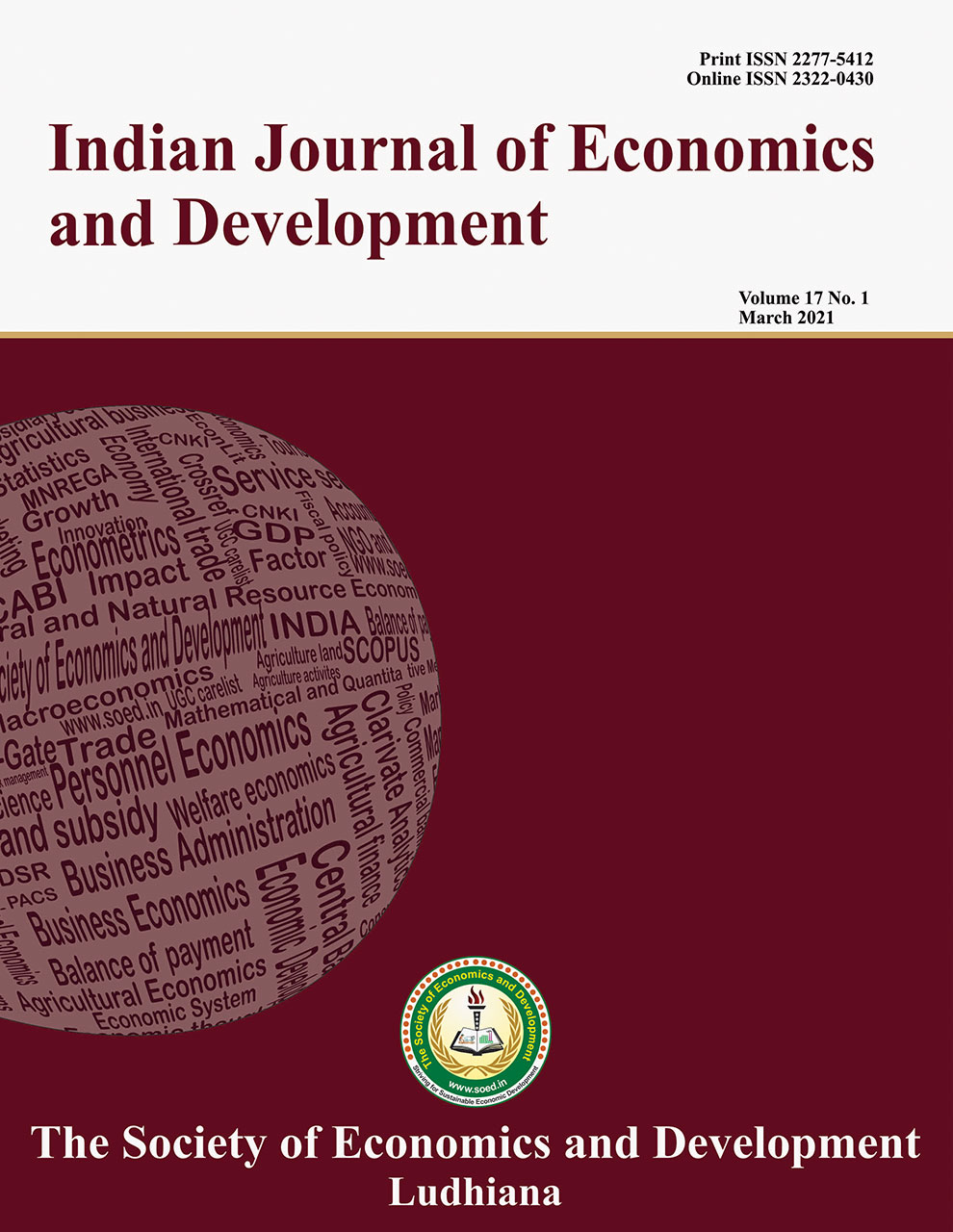Cereal Productivity in India: Insights from Historical and Global Contexts: 25122

Price: ₹ 1000
https://doi.org/10.35716/IJED-25122
Author: K.N. Singh, Anuja A.R., Harish Kumar H.V., Jaiprakash Bisen, Mrinmoy Ray, Rajeev Ranjan Kumar, and Shivaswamy G. P., and Rajesh T.
Author Address: ICAR-Indian Agricultural Statistics Research Institute, New Delhi-110012 (India)
Abstract
This
study used time-scaled crop productivity for spatial comparisons among leading
cereal producers, as it measures crop output per hectare per day and accounts
for the number of days required to reach the same output level across regions.
The results indicated that rice's per-hectare crop productivity in India (4.22
t/ha) was lower than in Bangladesh (4.89 t/ha), but it surpassed Bangladesh's
by 20 kg/ha/day when the new metrics were used. Similarly, for wheat, India
(3.53 t/ha) ranked third after China (5.85 t/ha) and Russia (3.55 t/ha);
however, in terms of its time-scaled productivity, India and China leads with
24 kg/ha/day followed by Australia (14 kg/ha/day) and Russia (12 kg/ha/day).
For maize, its ranked the same in both per-hectare and time-scaled crop
productivity. Structural break analysis was used to identify significant shifts
in rice, wheat, and maize output in India from 1950-51 to 2020-21 and to link
these changes to technological progress, institutional factors, and policy
reforms. Results showed that over the past 70 years, rice and wheat outputs
experienced five structural breaks, while maize had four, corresponding to key
technological and policy changes.
Keywords: Cereals, institutional factors, technological
progress, time-scaled crop productivity.
JEL Codes:
Q01, Q11, Q12.



